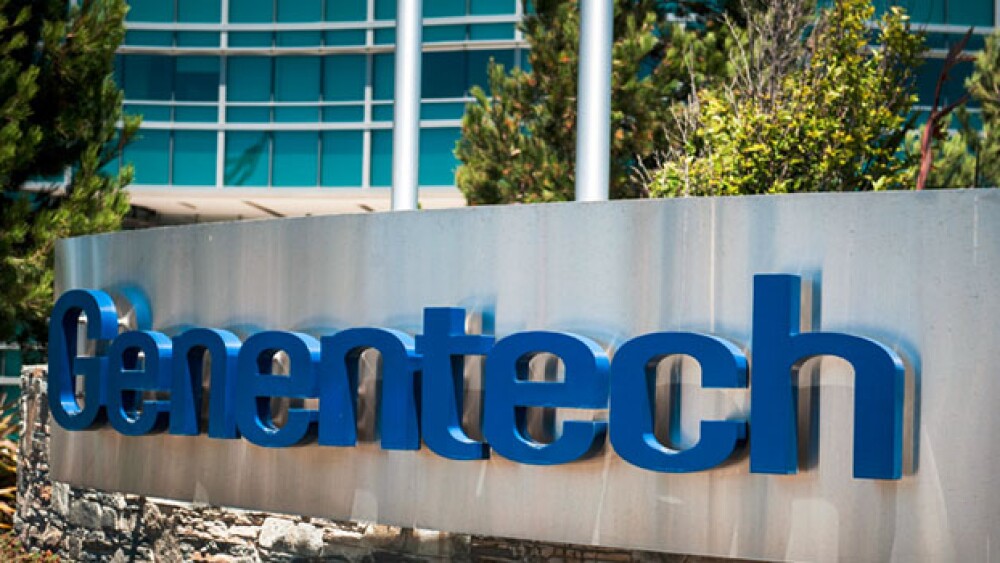In a deal-making spree, Genentech will team up with the small companies to take on various diseases, including multiple sclerosis.
It has been a deal-making morning for South San Francisco-based Genentech. The Roche subsidiary struck three separate deals with small companies in order to boost drug development.
Genentech and Cleveland-based Convelo Therapeutics, Inc. entered into a collaboration to accelerate discovery and development of novel remyelinating medicines for patients with neurological disorders such as multiple sclerosis (MS). The two companies will work together to discover novel remyelination therapies for MS and other myelin disorders. Convelo will receive an undisclosed upfront payment and research support from Genentech. Under terms of the deal, Genentech will retain an option to potentially acquire the company for an undisclosed sum as well as downstream milestones.
James Sabry, global head of pharma partnering at Roche, said there have been significant advances in the treatment of multiple sclerosis, but many patients still experience a progression in their disability. Currently approved therapeutics are focused on preventing additional myelin damage by modulating the immune system, but there are no approved therapies that tackle the unmet clinical need to promote myelin regeneration.
“Novel medicines that regenerate the myelin around nerve cells could help address this significant need. We look forward to collaborating with Convelo to hopefully deliver new options to people with multiple sclerosis and other neurological disorders,” Sabry said in a statement.
While the financial terms of the Convelo deal were not disclosed, Genentech entered into another deal today worth up to $1 billion. Genentech and Japan-based Sosei Group teamed up to discover and develop novel medicines that modulate G protein-coupled receptor (GPCR) targets. GPCRs are the largest membrane receptors in eukaryotes. According to Nature, it is believed that between one-third and one-half of all marketed drugs act by binding to GPCRs. If that’s true, then it explains Genentech’s interest in the target.
Under terms of the deal, Sosei will only receive $26 million in an upfront payment, but the deal is heavily backloaded. As the two companies work across a range of undisclosed disease targets, Sosei could earn future milestone payments that amount to $1 billion. That could increase with royalties from any approved drug sales. As noted, the targets the companies are going after were undisclosed, but in the announcement, the companies said the “nominated targets represent promising new therapeutic intervention points across a range of diseases.” Genentech will be responsible for developing and commercializing potential new medicines for each novel target and will have exclusive global rights to these agents.
Sabry said Genentech believes GPCRs are an important target class for multiple diseases. He said Sosei brings unique capabilities to the collaboration to enable and accelerate GPCR drug discovery.
In its third deal of the day, Genentech formed an alliance with Waltham, Mass.-based Skyhawk Therapeutics to develop and commercialize small molecules that modulate RNA splicing. In the announcement, Skyhawk said it will use its SkySTAR technology platform to discover and develop innovative small-molecule treatments directed to certain oncology and neurological disease targets.
The financial terms of the deal were undisclosed but the agreement gives Genentech an exclusive worldwide license to develop and commercialize potential therapeutics directed to multiple targets. Genentech will be responsible for clinical development and commercialization.
“Modulation of RNA splicing represents a novel approach for difficult-to-treat diseases. Skyhawk has developed a unique expertise in splicing biology, and we are excited to work with their team to discover potential new medicines for patients with cancer and neurodegenerative diseases,” Sabry said.





